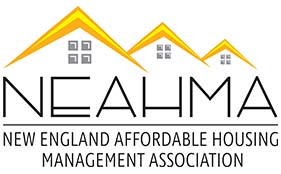Frank A. Flynn, Esq. and David A. Carlson, Esq., Flynn Law Group
Imagine your surprise when you walk into your office on a Monday morning to meet a prospective tenant and he stinks of marijuana as if he walked straight from a concert into your building. Even more surprising, the prospective tenant is not bashful about his weed usage. Without asking, he simply blurts out, “Yeah man, I got a medical marijuana card so I smoke a lot of weed, it’s legit now.” After years in property management, you just know this guy is going to be a problem, but you have read the headlines and have heard that it is legal to use marijuana in your state now. What are you to do?
Coast to coast states are passing laws regarding marijuana use; from Washington and Colorado legalizing recreational pot use, to multiple states passing medical marijuana legislation, the drug is changing the face of the legal landscape. Clearly, there is a trend spreading across the country in which more and more states are either outright legalizing or decriminalizing certain amounts of marijuana. However the manufacture, distribution or possession of marijuana is still federally a criminal offense. Even though many states have “decriminalized” medical or recreational marijuana, all forms of marijuana use are still illegal under federal law even if permitted under state law. So if you have tenants using marijuana in your development, what law controls, state or federal?
On Monday, Dec. 29, 2014, the U.S. Department of Housing and Urban Development (HUD) issued a memo, “Use of Marijuana in Multifamily Properties,” that expounds on the use of medical marijuana in HUD subsidized multifamily properties. The main purpose of the memo was to confirm to PHAs, owners and operators that notwithstanding actions by states to decriminalize marijuana or permit the use of medical marijuana, under the federal law marijuana is still illegal. In HUD’s opinion, federal law is still controlling.
Therefore, any discussion of marijuana in subsidized housing must begin with looking at the federal marijuana laws. While there are many federal laws that attempt to regulate the use of marijuana, there are two significant laws applicable to federally subsidized housing units:
- The Controlled Substances Act (CSA), 21 U.S.C. Section 801 et. seq; The CSA, signed into law by Richard Nixon, is thefederal S. drug policy under which the manufacture, importation, possession, use and distribution of certain substances is regulated. Pursuant to the CSA, marijuana is an illegal controlled substance.
- The Quality Housing and Work Responsibility Act of 1998 (QHWRA), 42 U.S.C. Section 13662. Among other things, the QHWRA removed disincentives for residents to work and become self-sufficient and provided rental protection for low-income residents. Section 577 of QHWRA also extended standards on denying admission and terminating tenancies for illegal drug use from PHAs to all owners and operators of other federally subsidized projects.
So what do these federal laws actually mean in terms of managing a subsidized property? As it pertains to prospective tenants the federal law is relatively clear: Current marijuana users cannot be admitted to federally assisted housing pursuant to Section 577 of the QHWRA. As stated in the HUD’s December 29, 2014 memo, “owners of federally assisted housing are required by QHWRA to deny admission to any household with a member who the owner determines is, at the time of application for admission, illegally using a controlled substance as that term is defined in the CSA.” Marijuana is a controlled substance under the CSA and therefore owners and operators of federally assisted projects must deny admission at the time of application to any household with a member who the owner determines is using marijuana.
The federal law, however, is not so clear when it comes to existing tenants. Under the QHWRA, owners must develop policies which “allow the termination of tenancy” for any household with a member:
1) who is illegally using a controlled substance, or
2) whose illegal use (or pattern of illegal use) of a controlled substance interferes with the health, safety or right to peaceful enjoyment of the premises by other residents.
Again, marijuana is a “controlled substance” under federal law; so whatever Marijuana policy you adopt must allow you to terminate the tenancy. The logical interpretation of HUD’s mandate is that you must have a policy that allows you to “terminate,” but you cannot have a policy that mandates that a tenancy be preserved in what may seem to be harmless cases like tenants using medical marijuana and not disturbing others. Your marijuana policy cannot be “smoke them if you got them” it has to be “if you smoke dope, we can and may evict you” because your policy must retain the ability to allow for the termination of the tenancy.
Unfortunately, the word allow is not very helpful to you as a property manager. In HUD’s opinion the word allow leaves the ultimate decision regarding termination of an existing tenancy to the discretion of an owner to be made on a case by case basis. Additionally, it is HUD’s opinion that in situations where termination is deemed necessary, an owner can decide whether to terminate the offending resident or the entire household. Again, more discretion.
It is our opinion that there is likely some danger with regard to management having this discretion. Discretion may lead to allegations of discrimination based on claims that the discretion is not being fairly employed. We caution management companies to be sure to develop a policy with regard to handling instances of possession or use of marijuana, and to memorialize this policy in writing. Then, we strongly encourage management to uniformly enforce this policy. Uniform enforcement is very important to best guard against a tenant claiming that management is using its discretion in a way that discriminates against a protected class of individuals.
The discretion to evict an existing tenant for using marijuana also raises important questions. Is management abusing that discretion if it chooses to evict a tenant for smoking marijuana in a state where it is “legal” to smoke marijuana? Even worse, is it an abuse of management’s discretion to evict a tenant smoking medical marijuana on the property because of a chronic disease? This is why it is of utmost importance to develop a written policy on how you are going to handle instances of possession or use of marijuana and then enforce the policy uniformly.
We would be happy to assist you in developing a policy that complies with the federal Quality Housing and Work Responsibility Act and the Controlled Substances Act. Please contact our office today to discuss your development’s current marijuana policy.

